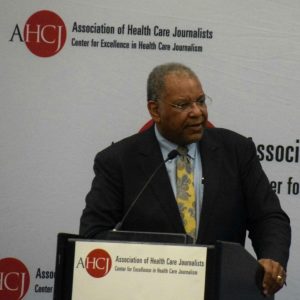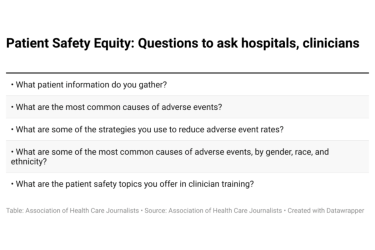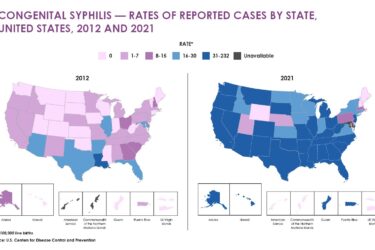
Otis Brawley has given a lot of thought lately to the socioeconomic factors that serve as predictors of health disparities among disadvantaged Americans.
Brawley, a Bloomberg distinguished professor at Johns Hopkins University, told a crowded room at Health Journalism 2019 in Baltimore on Thursday that a community’s resources – or lack thereof – contributes mightily to the health outcomes of its residents.
That holds true, regardless of race, Brawley explained to attendees at the record-breaking health journalism conference. About 800 people are attending the Baltimore conference, the 20th annual training confab AHCJ has held.
“When talking about disparities, I’m worried about Massachusetts versus Mississippi when it comes to breast cancer,” Brawley said. “It’s no longer black and white. [Take into account] rich-poor and the less-educated – you’ve got Massachusetts versus Mississippi.”
To achieve health equity, he said “Some groups are going to need a little bit more than other groups of people.”
As a measure of Brawley’s popularity at AHCJ events, a long line of interested journalists took the microphone to extend his 20-minute speech another 40 minutes. Brawley frequently has shared with health journalists his belief that their roles are crucial in helping the public understand the complexities of public health and policy issues.
One questioner asked, “Poverty tracks death. Looking at the map, how do we address that, the differences in poverty impacting health?”
Brawley replied: “What I am advocating is programs to try to overcome the lack of access because poverty is the problem. … It’s not your DNA, it’s your ZNA: Your ZIP code.”
Thursday also featured two well-attended field trips and a number of sessions packed with health journalists eager to learn about creating podcasts, obtaining public records, understanding the intricacies of genetics and identifying trends that threaten the health of children and adolescents – from measles to obesity.
The morning’s “Right to Know: How to get your hands on public records” session, moderated by Felice Freyer, AHCJ’s vice president and a health reporter at The Boston Globe, drew more than 80 journalists eager for guidance and tips on shaking loose government information.
As an illustration of how long it can take for federal Freedom of Information Act filings to yield results, one presenter told journalists that some tongue-in-cheek reporters have taken to sending their FOIA requests birthday cards to mark yet another year of no action.
That prompted one attendee to muse over sending a greeting card of an adorable kitten clinging to a tree branch by its claws:
Dear FOIA No. 45321,
Another year has gone by.
You are not growing older.
You are getting stronger.
Hang in there.
AHCJ graduate research assistant Catherine Wendlandt contributed to this post.
(Editor’s note: The original post stated this was AHCJ’s 21st conference. While the organization has been in existence for 21 years, this was its 20th conference. The blog post has been updated to reflect this.)







